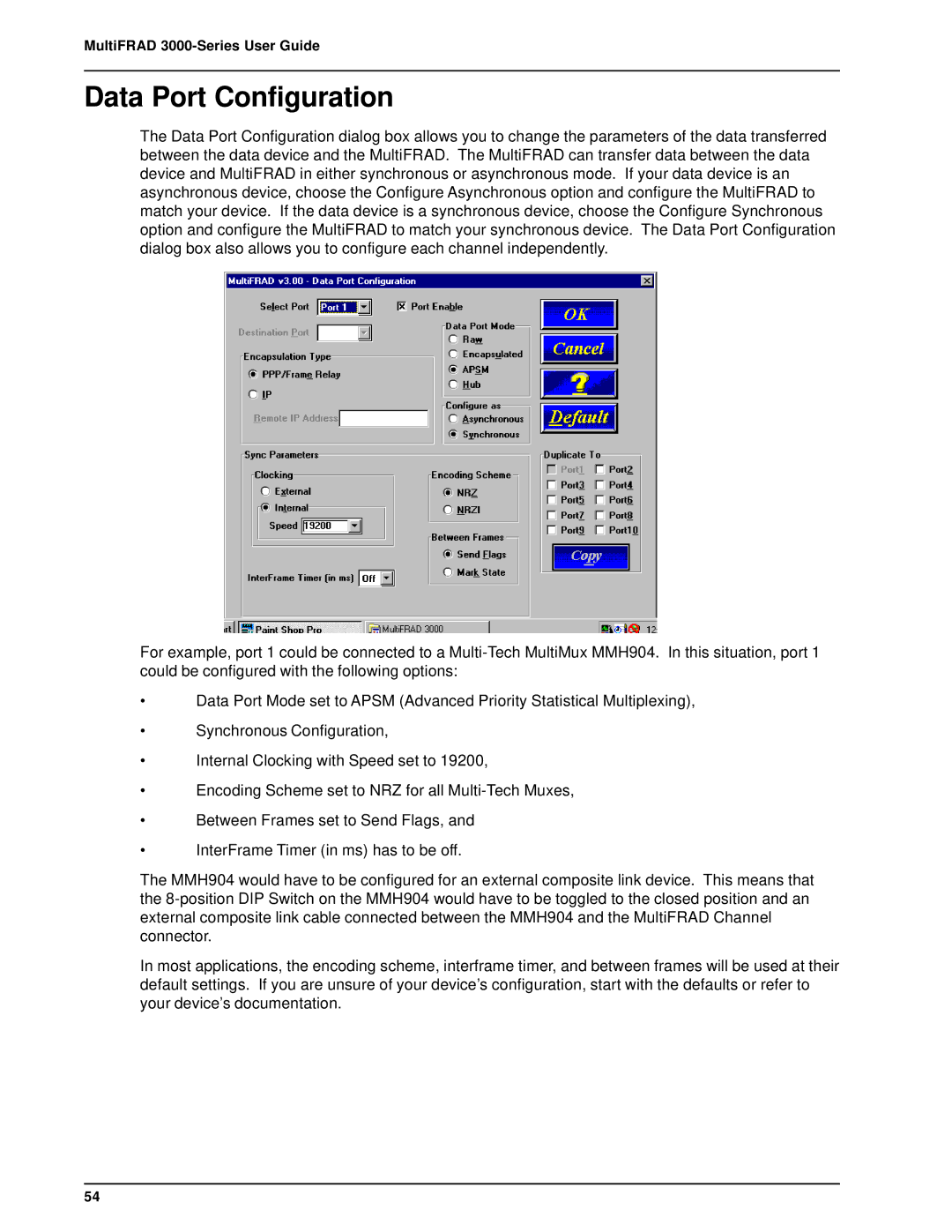
MultiFRAD 3000-Series User Guide
Data Port Configuration
The Data Port Configuration dialog box allows you to change the parameters of the data transferred between the data device and the MultiFRAD. The MultiFRAD can transfer data between the data device and MultiFRAD in either synchronous or asynchronous mode. If your data device is an asynchronous device, choose the Configure Asynchronous option and configure the MultiFRAD to match your device. If the data device is a synchronous device, choose the Configure Synchronous option and configure the MultiFRAD to match your synchronous device. The Data Port Configuration dialog box also allows you to configure each channel independently.
For example, port 1 could be connected to a
•Data Port Mode set to APSM (Advanced Priority Statistical Multiplexing),
•Synchronous Configuration,
•Internal Clocking with Speed set to 19200,
•Encoding Scheme set to NRZ for all
•Between Frames set to Send Flags, and
•InterFrame Timer (in ms) has to be off.
The MMH904 would have to be configured for an external composite link device. This means that the
In most applications, the encoding scheme, interframe timer, and between frames will be used at their default settings. If you are unsure of your device’s configuration, start with the defaults or refer to your device’s documentation.
54
